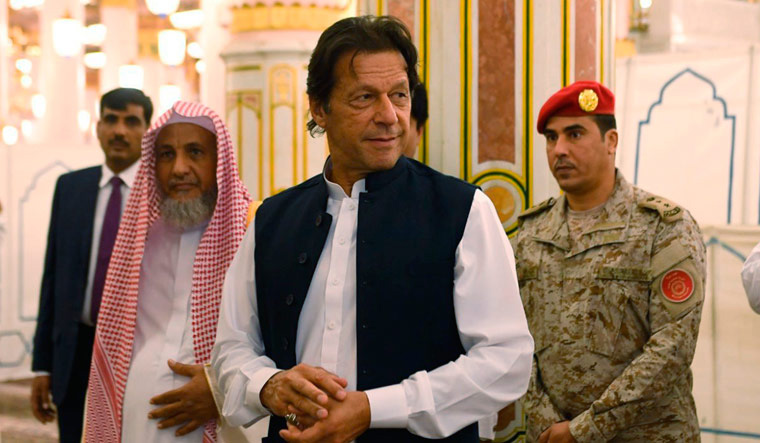Pakistan Prime Minister Imran Khan at his first official trip to the United States said he would meet the Taliban upon his return to Pakistan as part of efforts to end 18 years of war in Afghanistan.
President Trump had hosted Prime Minister Khan at the White House.
Imran Khan said he had also spoken with Afghan President Ashraf Ghani, and now, when he goes back, "I will meet the Taliban and I will try my best to get them to talk to the Afghan government."
Khan said he had been contacted by the Islamist extremist Afghan Taliban "a few months back", after his election win in July 2018, but did not take a meeting at that time because Kabul was not in favour of it.
Khan, after his meeting with US Secretary of State Mike Pompeo, said that Pompeo emphasized the importance of working together and "Pakistan's significant role in supporting the Afghan peace process and counterterrorism,".
The US peace envoy to Afghanistan Zalmay Khalilzad left for Kabul Monday for the latest round of talks. He is then expected to head to Doha, Qatar. Though Khalilzad has had several meetings with the Taliban, a major hurdle has been the group's refusal to negotiate directly with the Afghan government.
"But we feel that if we all work together, we feel this is the best chance of there to be peace in Afghanistan." Khan also stressed that Afghanistan's presidential election in September "must be an inclusive election where the Taliban also participate".
Th meeting between Trump and Khan definitely is a breakthrough since leaders of both countries have not met for five years. Relations between the two nations have been tense ever since the 9/11 attacks.
Pakistan was the Taliban's main sponsor when it seized power in Afghanistan during the 1990s, and its ongoing influence over the group is seen as key to facilitating a political settlement. It was post 9/11 that US sent troops into Afghanistan to capture Osama bin Laden and continued to stay to counter Taliban in the region.
This influence has also opened Pakistan up to accusations that it is fuelling the fighting in Afghanistan through the use of militant proxies such as the Taliban-allied Haqqani group.
Khan made an unusual on-the-record admission that Pakistan had in the past pursued this policy, which it calls "strategic depth," but he insisted that was no longer the policy.
"Today, there is no concept in Pakistan of 'strategic depth' because we feel that by interfering in Afghanistan... we have actually done a lot of damage to our own country," he said.


